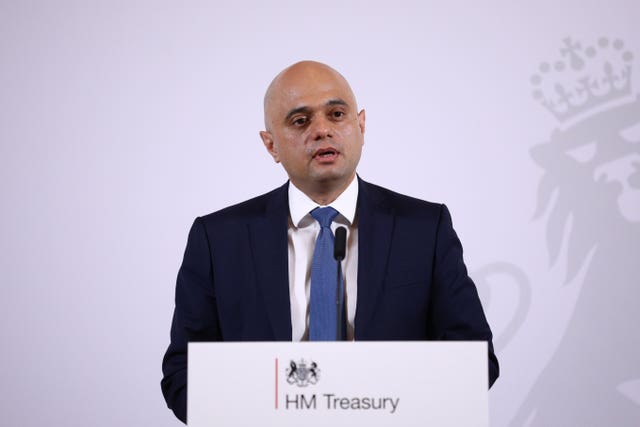Andrew Bailey named next governor of the Bank of England
Mr Bailey will take over from Mark Carney, who has spent six years in the post.
Andrew Bailey, the head of the Financial Conduct Authority (FCA), has been announced as the next governor of the Bank of England.
A former deputy governor and chief cashier of the Bank, Mr Bailey was confirmed for the role by Chancellor Sajid Javid after a selection process that first started two years ago.
The Chancellor said Mr Bailey was the “stand-out candidate” and is a “leader of international standing”, as he was handed the top job with a salary of £495,000.
Mr Bailey’s pay is higher than Mr Carney’s – who took a salary £480,000 – although he will not be entitled to a housing allowance, unlike his predecessor.
Mr Javid added that the FCA chief had already been identified before the recent general election, but it was decided to make the appointment following the result.
A shortlist of candidates was drawn up and interviewed by a panel of experts, before the Chancellor conducted interviews over recent months and recommended Mr Bailey to the Prime Minister.
Mr Bailey had been one of the long-term favourites to take over the position but has come under heavy scrutiny during his tenure at the FCA amid a series of major personal finance scandals, including the £236 million collapse of London Capital and Finance.
The new governor will start on March 16, with Mr Carney agreeing to extend his own leaving date until then. He was due to step down at the end of January.
An interim chief executive of the FCA will be announced shortly, with a process to find a permanent replacement in the new year.
Mr Javid said: “There was one clear front-runner who I had no clear hesitation in recommending to the Prime Minister.
“I’m delighted to announce that the next governor of the Bank of England will be Andrew Bailey.”
The Chancellor also said all political parties “agree that the independence of the Bank of England is essential” to a strong economy, and the appointment transcended party lines.
“What matters is that we appoint someone who can make the right decisions for British businesses and families, and can do so over the long term,” he said.
Mr Bailey will take on the role for the full eight-year tenure and the Treasury Select Committee will be able to question him ahead of his start date, the Chancellor added.
When asked whether candidates’ views on Brexit had played a part in the selection process, Mr Javid said: “The only consideration was finding the best person for the job.
“We’ve had a very exhaustive, open process with a panel that has looked very carefully at every potential candidate and what mattered most was the experience that they bring to the table.”
He also insisted that the Bank of England must remain independent, even if it means giving advice that the Government disagrees with.
Mr Javid said: “I want him to uphold vigorously the independence of the institution.
“I think it’s critical that the governor, and indeed everyone working with the governor at the Bank of England, is independently-minded and the institution under the leadership of the governor makes whatever decisions that it feels necessary without any interference whatsoever from any government, any politician or any other body.”

Mr Bailey, who was not at the Treasury announcement, said: “It is a tremendous honour to be chosen as governor of the Bank of England and to have the opportunity to serve the people of the United Kingdom, particularly at such a critical time for the nation as we leave the European Union.
“The Bank has a very important job, and as governor I will continue the work that Mark Carney has done to ensure that it has the public interest at the heart of everything it does.
“It is important to me that the Bank continues to work for the public by maintaining monetary and financial stability and ensuring that financial institutions are safe and sound.”
His selection comes after a lengthy appointment process which saw him reportedly pip to the post both Minouche Shafik, another former Bank of England deputy governor, and Gerard Lyons, a close Boris Johnson ally.
Mr Carney said: “I am delighted to welcome Andrew Bailey back to the Bank as its next governor.
“An extraordinary public servant, Andrew brings unparalleled experience built over three decades of dedicated service across all policy areas of the Bank, and most recently as CEO of the FCA.”
Mr Carney took up the governor post on July 1 2013 and extended his tenure twice.
He said in 2016 that he would stay for an extra year after his original tenure ended – until June 2018 – but was persuaded by then-chancellor Philip Hammond to extend his term by another seven months to help ease disruption from Brexit at a critical time.
But the Canadian’s time at the helm has been marred over the past two years, with the governor and the Bank’s Monetary Policy Committee (MPC) coming under heavy criticism over their handling of communications surrounding Brexit.





